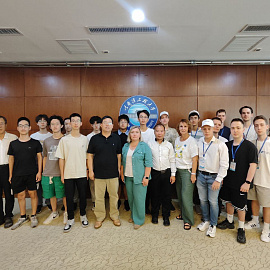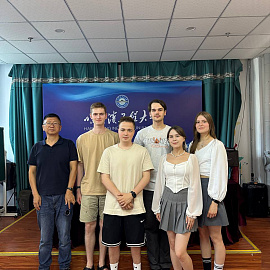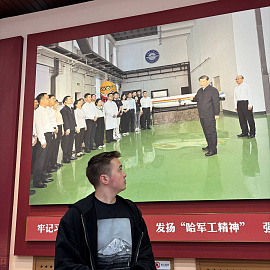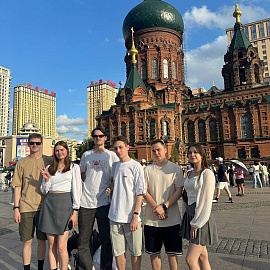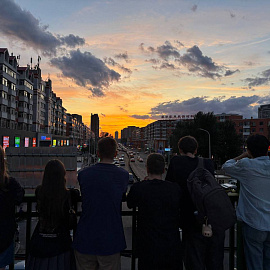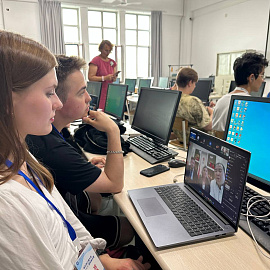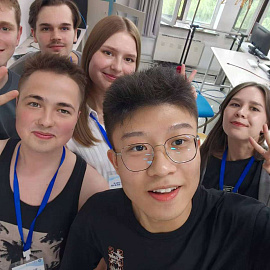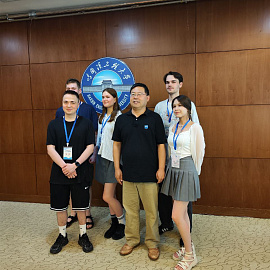MAU students returned from summer programming school in China
Five students from the University's branch in Apatity, Marine Academy, Institute of Applied Arctic Technologies, and Institute of Intelligent Systems and Digital Technologies, took part in the Summer school at Harbin Engineering University, one of China's top universities. The trip was part of the active development of partnership between Russia and China in higher education.
The participation of the students in the international summer school is an example of strengthening bilateral ties, which were discussed at a high level recently. For instance, from August 21 to 26, Valerii Falkov, Minister of Science and Higher Education of the Russian Federation, was on a working visit to China. During talks with Chinese colleagues, Minister noted that cooperation in science and education is one of the top priorities in the development of comprehensive partnership and strategic interaction between Russia and China.
«We see our task not only in successfully maintaining this high level, but also in consistently deepening cooperation in areas where there is mutual need,» Valerii Falkov emphasised.
The experience of MAU students is a clear example of successful educational exchange. For two weeks, Mikhail Agapov, Veronika Baskova, Dmitrii Kadarmetov, Arina Kizenko, and Nikita Petrovskii took part in an intensive computer science programme to prepare for the International Collegiate Programming Contest (ICPC). The study focused on using mathematical methods—set theory, number theory, and graph theory—to build algorithms for solving competition-level problems.
Besides academics, the programme included cultural activities and sightseeing in Harbin, Murmansk's sister city. The students visited iconic places such as the Saint Sophia Cathedral and Sun Island, as well as laboratories at the School of Computer Science, including the Artificial Intelligence in Navigation Lab.
«The trip left extremely positive impressions. The high level of organisation, friendly atmosphere, and willingness to help from the host side, along with the invaluable experience of gaining new knowledge and cultural exchange—these are exactly the opportunities that international cooperation opens up for students,» the participants shared.
The project was organised with the support of the host university: Harbin Engineering University provided scholarships covering the costs of tuition, accommodation, meals, insurance, and transportation.
The successful completion of the summer school opens new prospects for further cooperation between Murmansk Arctic University and Harbin Engineering University. It also contributes to the strategic goal of increasing the number of students in academic exchange between Russia and China to 100,000 by 2030.

.jpg)
